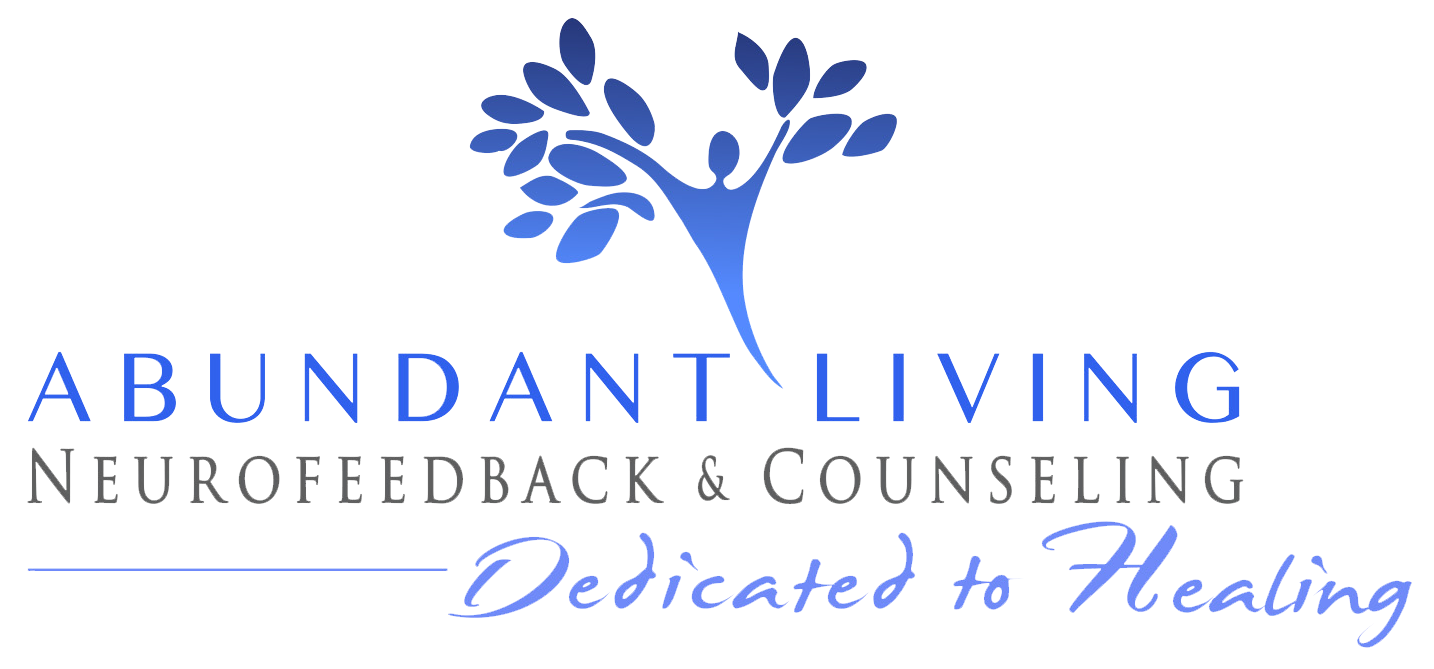Since starting my social anxiety has went down tremendously, the staff is very nice and welcoming. Definitely will recommend to family and friends.
How Does Ketamine Infusion Therapy Work
Are you struggling with depression, and traditional antidepressants or other therapies fail to provide you relief? Do not lose hope. Ketamine infusion therapy is an innovative treatment that offers a promising path to relief from depression symptoms and many other mental health conditions. This article will provide detailed insights into ketamine treatments and their mechanisms.
What is Ketamine Infusion Therapy?
It is a medical treatment that utilizes the anesthetic drug ketamine to address various conditions, including depression, anxiety, and chronic pain. The therapy involves administering a controlled and monitored infusion of ketamine, typically through an intravenous (IV) line, under the supervision of a medical expert.
Ketamine is a general anesthetic commonly used in surgical settings since the 1970s. It has garnered significant popularity in the field of mental health. The effectiveness of this therapy has been extensively studied and validated in numerous research over the past two decades. These studies have confirmed its efficacy in alleviating depression. Also, they have highlighted its potential in addressing various other mental health disorders.
What Does Ketamine Infusion Therapy Treat?
Here are some conditions that ketamine therapy has been used to treat:
Treatment-Resistant Depression
Ketamine infusion therapy effectively manages treatment-resistant depression, which refers to depression that does not respond adequately to conventional antidepressant medications. It can provide relief to individuals experiencing severe depressive symptoms and suicidal thoughts.
Anxiety Disorders
Ketamine assists in alleviating symptoms of anxiety disorders. They include generalized anxiety disorder, social anxiety disorder, and post-traumatic stress disorder (PTSD). By modulating certain neurotransmitters in the brain, this therapy can help reduce anxiety levels and improve overall mental well-being.
Chronic Pain Conditions
Ketamine infusion therapy can efficiently manage chronic pain conditions. These conditions include fibromyalgia, complex regional pain syndrome (CRPS), and neuropathic pain.
How Does Ketamine Treatment Work?
Compared to antidepressants, ketamine works differently. Ketamine acts specifically on NMDA (N-methyl-D-aspartate) receptors and raises levels of glutamate, the brain’s most potent chemical messenger. On the other hand, typical antidepressants focus on controlling the hormone serotonin.
In ketamine therapy, the parts of the brain that are most affected by depression are strengthened. Also, their critical neuronal connections and pathways are restored by increasing glutamate. Hence brain function improves, leading to improved mood management.
Ketamine therapy, when administered in small amounts, is considered more effective and can quickly alleviate symptoms. Ketamine’s ability to raise glutamate levels has a more profound effect on brain cells than antidepressants.
Side Effects of Ketamine Therapy
Side effects of ketamine vary among individuals. The following are a few of the most prevalent side effects of ketamine infusion therapy:
- Nausea or vomiting
- Increased heart rate or blood pressure
- Changes in vision, such as blurriness or double vision
- Dizziness or lightheadedness
- Headache
- Increased salivation or dry mouth
- Muscle tremors or twitches
- Anxiety or restlessness
- Hallucinations
- Dissociation
- Fatigue or drowsiness
- Insomnia or changes in sleep patterns
- Appetite changes
- Bladder problems
FAQ’s
We suggest you consult with your healthcare provider before making any changes to your medication while having ketamine therapy. They can provide personalized guidance based on your specific medical needs. It is crucial not to discontinue or change medications without professional advice.
You will be closely monitored during and after the infusion to assess its effectiveness. Your healthcare provider will evaluate various factors, such as symptom improvement, vital signs, and laboratory tests, to determine the success of the infusion. They will also communicate the results and discuss any further steps or adjustments needed for your treatment.

Steps to Overcoming Teenage Anger
- You’ve been feeling low or irritable for most of the day, every day for two weeks or more. You might have found yourself worrying about past or future events for long periods of time, or simply feeling sad, cross or tearful. Sometimes it’s hard to recognize a gradual change – have others noticed that you don’t seem your usual self?
- You’ve lost interest in activities that you used to enjoy. Perhaps you have been seeing less of your friends or family recently, have stopped going to the gym, or cooking balanced meals. This is really about recognizing changes in what’s normal for you – no one is saying you have to exercise five times a week or eat your greens, but changes in your routine can offer concrete indications that your mood is changing.
- You are struggling to concentrate. You might notice that you struggle to focus when reading or watching television, for example, or to follow the thread of a spoken conversation. This could be affecting your performance at work, or limiting your ability to perform routine tasks such as food shopping. Again, we are looking for a change in what’s normal for you, so if concentration has always been something you find tricky there is little cause for concern.

In three words I can sum up everything I’ve learned about life: it goes on.
– Robert Frost

Am I Depressed? 6 Signs You Should Know About
- You’ve been feeling low or irritable for most of the day, every day for two weeks or more. You might have found yourself worrying about past or future events for long periods of time, or simply feeling sad, cross or tearful. Sometimes it’s hard to recognize a gradual change – have others noticed that you don’t seem your usual self?
- You’ve lost interest in activities that you used to enjoy. Perhaps you have been seeing less of your friends or family recently, have stopped going to the gym, or cooking balanced meals. This is really about recognizing changes in what’s normal for you – no one is saying you have to exercise five times a week or eat your greens, but changes in your routine can offer concrete indications that your mood is changing.
- You are struggling to concentrate. You might notice that you struggle to focus when reading or watching television, for example, or to follow the thread of a spoken conversation. This could be affecting your performance at work, or limiting your ability to perform routine tasks such as food shopping. Again, we are looking for a change in what’s normal for you, so if concentration has always been something you find tricky there is little cause for concern.

In three words I can sum up everything I’ve learned about life: it goes on.
– Robert Frost

How to Talk About Your Mental Health
- You’ve been feeling low or irritable for most of the day, every day for two weeks or more. You might have found yourself worrying about past or future events for long periods of time, or simply feeling sad, cross or tearful. Sometimes it’s hard to recognize a gradual change – have others noticed that you don’t seem your usual self?
- You’ve lost interest in activities that you used to enjoy. Perhaps you have been seeing less of your friends or family recently, have stopped going to the gym, or cooking balanced meals. This is really about recognizing changes in what’s normal for you – no one is saying you have to exercise five times a week or eat your greens, but changes in your routine can offer concrete indications that your mood is changing.
- You are struggling to concentrate. You might notice that you struggle to focus when reading or watching television, for example, or to follow the thread of a spoken conversation. This could be affecting your performance at work, or limiting your ability to perform routine tasks such as food shopping. Again, we are looking for a change in what’s normal for you, so if concentration has always been something you find tricky there is little cause for concern.

In three words I can sum up everything I’ve learned about life: it goes on.
– Robert Frost
Antidepressant Medications: What are they?
- You’ve been feeling low or irritable for most of the day, every day for two weeks or more. You might have found yourself worrying about past or future events for long periods of time, or simply feeling sad, cross or tearful. Sometimes it’s hard to recognize a gradual change – have others noticed that you don’t seem your usual self?
- You’ve lost interest in activities that you used to enjoy. Perhaps you have been seeing less of your friends or family recently, have stopped going to the gym, or cooking balanced meals. This is really about recognizing changes in what’s normal for you – no one is saying you have to exercise five times a week or eat your greens, but changes in your routine can offer concrete indications that your mood is changing.
- You are struggling to concentrate. You might notice that you struggle to focus when reading or watching television, for example, or to follow the thread of a spoken conversation. This could be affecting your performance at work, or limiting your ability to perform routine tasks such as food shopping. Again, we are looking for a change in what’s normal for you, so if concentration has always been something you find tricky there is little cause for concern.

In three words I can sum up everything I’ve learned about life: it goes on.
– Robert Frost
What Does Ketamine Therapy Feel Like?
Over the past five decades, healthcare providers have used ketamine as an anesthetic, pain alleviator, and sedative during surgical procedures. Recently, it has obtained clinical approval for treating individuals with different mental disorders to other treatment forms. This article will explore how it works and what does ketamine therapy feel like?
Who Is Likely to Benefit the Most from Ketamine Therapy?
Ketamine therapy is primarily intended for individuals experiencing severe mental illness who have found little or no relief from other medications. The treatment has undergone extensive research, particularly in individuals with treatment-resistant depression and acute suicidal tendencies.
Additionally, it has shown potential benefits for patients with conditions like post-traumatic stress disorder (PTSD), obsessive-compulsive disorder (OCD), bipolar depression, and anxiety disorders, much more. However, individuals with certain conditions, such as psychosis, are generally not suitable candidates for ketamine therapy.
Is There Any Evidence That Supports the Significance of Ketamine Therapy
Numerous studies demonstrated that ketamine therapy could serve as a rapid and effective treatment, demonstrating significant symptom relief within hours or days. Although there is a lack of long-term data, initial small-scale studies have indicated that approximately 50 to 70 percent of patients experienced a substantial reduction in depression symptoms through ketamine therapy. In contrast, traditional antidepressants often take several weeks to become effective and may not work for specific individuals.
While conventional antidepressants primarily impact the levels of specific brain chemicals associated with mood and emotion, ketamine acts on a different neurotransmitter called glutamate. By influencing glutamate, ketamine initiates a series of biochemical, structural, and functional changes within the brain. It is hypothesized that ketamine enhances the brain’s adaptability and receptiveness to therapy and alternative thought processes.
What Happens During Ketamine Treatment?
During ketamine therapy, a patient receives controlled doses of ketamine to induce a unique therapeutic state. Typically administered intravenously or through a nasal spray, the patient is closely monitored by medical professionals throughout the session.
In a clinical setting, the patient sits in a comfortable chair. The number of ketamine sessions can vary. But it is commonly recommended to undergo an initial course of six treatments within two to three weeks.
In addition to the medication, talk therapy may also be included as part of the overall treatment plan, often conducted after the effects of the drug have subsided.
How Would You Describe the Experience of Ketamine Therapy
Taking the medication might make you feel relaxed and disconnected from your surroundings. Your sense of time and space might also change. Some people say it feels like being in a dream, where your thoughts and feelings become more flexible, and you think deeply about yourself.
You might feel like the line between who you are and your thoughts blurs, allowing you to think about your experiences and emotions. Ketamine therapy often makes people feel calm and peaceful, giving them a break from feeling anxious, depressed, or affected by trauma.
Everyone’s experience is different, but many people say they feel a strong sense of relief, become more aware of themselves, and have important realizations during their therapy sessions, which helps them heal and grow as a person.
How Much Does Ketamine Therapy Cost? Will Insurance Pay for It?
The cost of ketamine therapy can vary depending on several factors. These factors include location, clinic, and treatment duration. However, it is crucial to note that costs may differ. As for insurance coverage, it is worth checking with individual insurance providers as policies can vary.
While some insurance companies may cover ketamine therapy for certain conditions, such as treatment-resistant depression, others may not provide coverage. It is advisable to contact your insurance provider directly to inquire about the specifics of your policy and potential reimbursement options.
Is It Possible for People to Engage in Self-Medication Using Ketamine
Are you thinking about using ketamine as a treatment? We recommend you discuss with a reliable healthcare provider or clinician to explore the available options. It is strongly discouraged to self-medicate with ketamine since it can lead to both physical and psychological drawbacks.
When individuals use ketamine without proper monitoring, they may become dependent on it over time. Psychologically, ketamine can bring back memories of traumatic events. Hence, supervision from medical professionals is crucial in case patients need assistance or guidance.
Learn MoreKetamine Infusion Therapy vs. Antidepressants
Depression is a significant mental health disorder that affects many people globally. With a wide range of treatment options available, selecting the most suitable one can be overwhelming. In this article, we aim to provide a comprehensive comparison of Ketamine Infusion vs. antidepressants, allowing you to make an informed decision.
Are Ketamine and Antidepressants the Same Thing?
Ketamine and antidepressants are not the same thing. While they both have a role in treating mental health conditions, they differ in their mechanism of action and usage.
Ketamine is primarily a dissociative anesthetic originally used as a painkiller during the Vietnam War. However, it has been found to have additional effects on the brain by targeting specific mood and emotion processing receptors. This rewiring of the brain contributes to its efficacy in treating depression. Also, ketamine is recommended only to be administered under the supervision of an experienced doctor.
On the other hand, antidepressants refer to a kind of medication commonly used to treat depression and other mental health conditions. There are different types of antidepressants, including selective serotonin reuptake inhibitors (SSRIs), serotonin-norepinephrine reuptake inhibitors (SNRIs), tricyclic antidepressants (TCAs), and others.
These medications regulate the levels of certain neurotransmitters in the brain, such as serotonin and norepinephrine, which are involved in mood regulation. Antidepressants are typically taken orally on a daily basis, and their therapeutic effects may take several weeks to become noticeable.
Ketamine Infusion Therapy Vs. Antidepressants
Now, let’s compare the two:
Effectiveness
Both ketamine therapy and antidepressants have shown efficacy in treating mental disorders. However, ketamine infusion therapy has gained attention for its rapid effects. Some people may experience relief from depressive symptoms within hours or days after receiving ketamine. Whereas antidepressants often take weeks or even months to show their full effects.
Administration
Ketamine therapy requires a medical professional to administer the medication either through injection or nasal spray. Hence, it is required to be done in a clinic or hospital setting. On the other hand, antidepressants are taken orally, usually as a pill, and can be taken at home.
Duration of Treatment
Ketamine therapy often involves a series of sessions, typically over a few weeks. Antidepressants, on the other hand, are usually taken for a longer period, sometimes several months or even years. The duration typically depends on the individual’s response and the recommendations of the healthcare provider.
Side Effects
Both ketamine therapy and antidepressants can have side effects. Ketamine therapy may cause temporary dissociative or hallucinogenic effects and requires careful monitoring. Antidepressants can also have side effects, which vary depending on the specific medication. Common side effects include nausea and dizziness. It is important to discuss potential side effects with a healthcare provider.
Suitability
Ketamine therapy is often considered when other treatments have not been effective or in cases of severe depression. Antidepressants are commonly prescribed as a first-line treatment for depression and can be effective for many individuals. The choice between the two depends on the individual’s specific needs, treatment history, and the recommendation of their healthcare provider.
Can Ketamine Infusion Therapy Replace Antidepressants?
Ketamine infusion is an alternative form of treatment for depression. It is known to be stronger, work faster, and have a higher success rate than traditional antidepressants. For individuals who have not responded well to antidepressants, ketamine infusions can be a groundbreaking option.
If you are currently taking antidepressants and want to try ketamine infusions, discussing it with your doctor is important. They can guide you and refer you to a specialized doctor at a ketamine infusion center who can determine the best approach for your condition.
Ketamine Infusion Therapy Vs. Antidepressants: What is the Core Difference?
- Ketamine therapy can have rapid and noticeable results within hours or days.
- Ketamine works on different brain pathways compared to most antidepressant medications.
FAQs
The effects of ketamine therapy can vary from person to person. Some individuals may experience a few days or weeks of relief, while others may benefit from longer-term effects.
In some cases, ketamine therapy may be used with antidepressant medications. It can be done under the guidance of a healthcare professional who can determine the best treatment approach based on individual needs.

